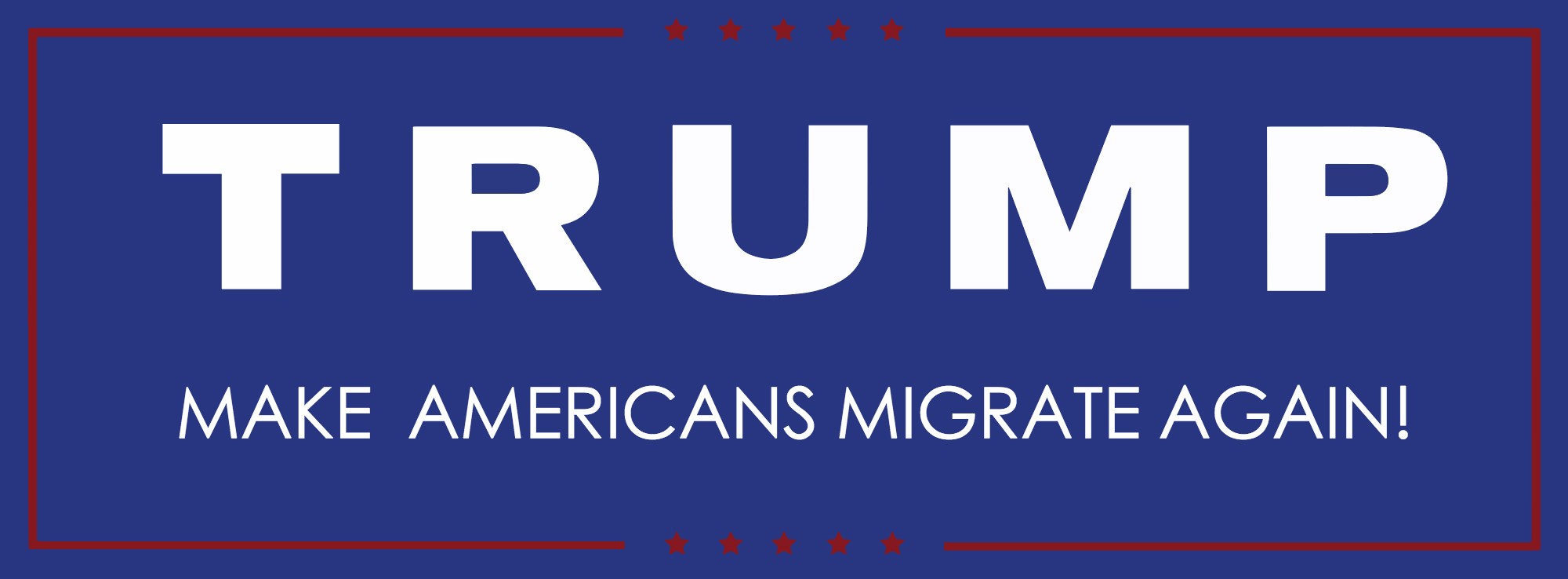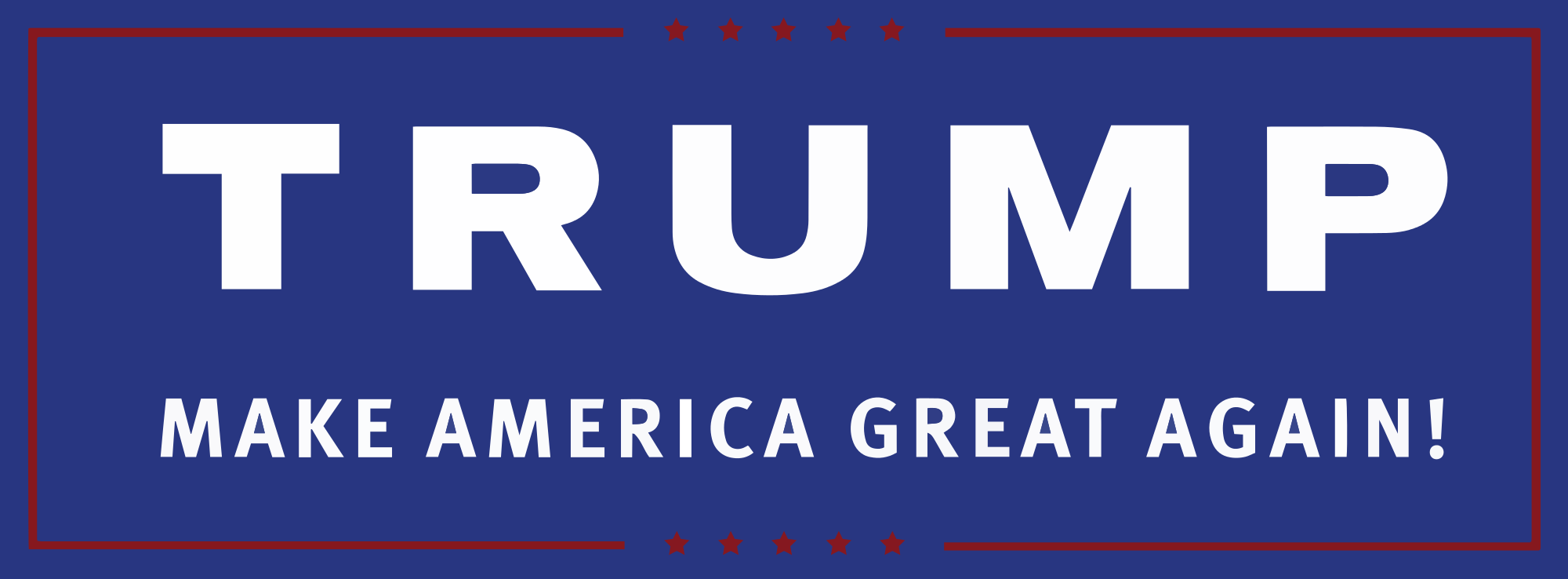My culture jam slogan “Make Americans Migrate Again!” is meant to evoke a double meaning. One where american inhabitants willingly leave the country and one where they are unwillingly forced to leave. During the 2016 campaign election, many dismissed Trump as a viable candidate. As he gained political power the public was increasingly subjected to his political stances. In present western culture celebrities are just as influential, if not more than politicians (Hargreaves, 2001). After realizing that Trump was now being seen as a serious presidential candidate many celebrities voiced their intentions to immigrate; with countries ranging from Italy to Africa to Canada. Samuel L. Jackson stated he’d be moving to South Africa whereas Bryan Cranston expressed that “I would definitely move [to Canada]” when asked what he would do if Trump was elected president (Lynch, 2016). The seriousness of the American people’s intent to migrate culminated with the Canadian immigration website crashing the night that Trump won presidency (Crowe, 2016). These are the people who willingly wanted to leave America; however, there is another group of nearly 800,000 upstanding young men and women who are having their status questioned.
A major campaign pillar was Trump’s views on deportation. He promised to immediately deport the criminal illegal immigrants; a view that was seen positively among the public (Trump, 2016). Despite this, one of his first actions was to rescind the Deferred Action for Childhood Arrivals (DACA)(Preston & Medina, 2016). Originally put into place by the Obama administrations DACA was an immigration policy that allowed some individuals who entered the country illegally as minors to be protected from deportation and be eligible for work permits granted they met several requirements. These requirements included having obtained a GED or being currently being enrolled in school or being honourably discharged from the Armed Forces / Coast Guard. Additional requirements included continuous residence in U.S. since June 15th, 2007, and no felonies or significant misdemeanours (U.S. Citizenship and Immigration Services, 2012). A final one of Trump’s campaign pillars was to raise the U.S.’s economic power; however, in a study conducted by Schoen (2017) he derived that the deportation of all DACA individuals would reduce U.S gross domestic product by 400 billion dollars over 10 years. Why then would Trump remove status’ of young men and women who fully assimilated to being American, contributed positively to society and served in the highly regarded military? Trump’s “Make America Great Again!” has left many upstanding Americans either fearing to live in this new America or fearing that the life they have built may be whisked away.
Citations
Crowe, P. (2016, November 09). Canada’s immigration website just crashed. Retrieved October 12, 2017, from https://www.businessinsider.nl/canadian-immigration-site-crash-election-2016-11/?international=true&r=US
Hargreaves, I. (2001, March 22). ENTERTAINMENT | Stars ‘more powerful than politicians’.Retrieved October 11, 2017, from http://news.bbc.co.uk/2/hi/entertainment/1234306.stm
Lynch, J. (2016, November 07). 9 celebrities who say theyll move to Canada if Donald Trump becomes president. Retrieved October 17, 2017, from https://www.businessinsider.nl/celebrities-move-to-canada-if-donald-trump-becomes-president-2016-11/?international=true&r=US
Preston, J., & Medina, J. (2016). Immigrants Who Came to US as Children Fear Deportation Under Trump. NY TIMES, Nov, 19.
Schoen, J. W. (2017, September 05). DACA deportations would cost billions for states like California, Texas and Illinois. Retrieved October 10, 2017, from https://qa-pa05pub.cnbc.com/2017/09/05/daca-deportations-could-cost-us-economy-more-than-400-billion.html
Trump, D. (2016). Immigration reform that will make America great again. Donald J. Trump Presidential Positions.
“U.S. Citizenship and Immigration Services.” Citizenship and Immigration Services, www.uscis.gov/portal/site/uscis.


